Trevor Adamson, singer/songwriter Shane Howard and Rene Kulitja at the Uluru Climb closure in October 2019.
“You just carry on/ Like you’ve always done…” – “Murri Time”, Shane Howard
“Murri Time” is my favourite work of Shane Howard’s. It’s an epic love song about a Murri man and a Murri woman and the spirit of Murri land that brims over into a national anthem of sorts (Murri is the Queensland version of Koori).
Shane had been living in Queensland for five years when he wrote it. A measure of the song’s authenticity is that in the 20 years since, he’s been asked to sing it at Murri funerals.
My favourite version of “Murri Time” is on his “Live In Ireland” album. He was touring Ireland as a support act for singer Mary Black. Her accordion player, Pat Crowley, was taken with “Murri Time” and at the end of the tour asked one night if he could play along.
And so an Aboriginal love story that has historical grandeur is accompanied by an Irish jig played slow and ever so gently, and there’s a timeless unity going on that transcends cultures with Shane in the middle.
Shane Howard is 66 today. He’s written more than 250 songs. I’ve spent the last 20-odd years urging him to write a book. I tell him: “If you don’t write a book, people are never going to understand what you’ve done”. People who travel between cultures get lost from sight.
In addition to being a singer and a songwriter, Shane Howard is a talker. Trying to get him through a crowded room is like trying to store water in a sieve. Every person in the room’s a potential conversation, a mind to be entered and explored, an opportunity that might never come again.
Besides which, he is a profoundly polite and respectful man. If someone initiates a conversation with him, he is obliged to reply. He’s talked with interesting and unusual people around the world, including Ireland and Aboriginal Australia. If he can get them up on stage to perform with him, all the better.
I remember saying to him one night after a performance at Melbourne’s Spiegel tent that the only people he didn’t have up on stage with him was the Vienna Boys’ Choir.
And that’s the problem with his book – he keeps meeting people in his head he wants to talk to. At one point, he’d reached 160,000 words and was still going strong. “You’ve got to start thinking in terms of ends,” I said. I gave him two ends. Good, strong ends. He vaulted both like a red kangaroo going over a fence.
We’ve had our share of adventures over the years. One night, coming back from a function on the outskirts of Melbourne where I’d spoken and he’d sung, we got lost. No Melways. He got us home by driving with his head out the window, looking up and navigating by the stars.
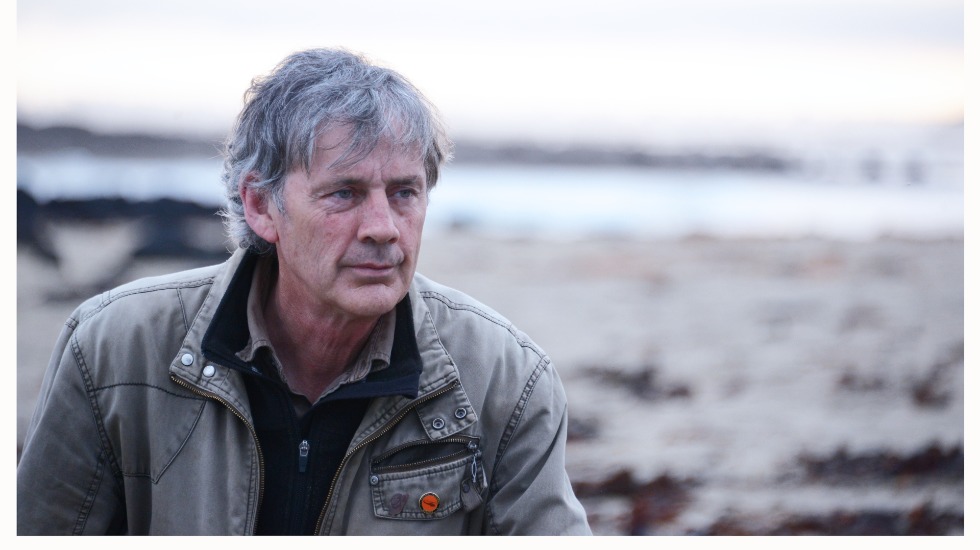
“Sometimes you can hear weariness in his voice. One of his later songs begins: ‘This old world keeps falling down…’ He hasn’t lost his ideals, he just has to try harder to affirm them.
Once I walked through a forest at night with him outside Warrnambool. A bird called. He called back. The bird replied. We walked together, he and the bird and I, my senses opened to the thick black bush.
Once he left a message for me to meet him at the Victorian Arts Centre. A mistake which somehow seems emblematic of our relationship occurred and I was led to a room and sat down among a troupe of Lithuanian actors rehearsing a production of Hamlet in Lithuanian.
The Lithuanians thought I was from the Arts Centre. Everyone else thought I was a Lithuanian. A Lithuanian Shakespearean actor. The role was not unappealing to me. That was the day he wanted me to meet Jimmy Little and the old Yorta Yorta man’s blessing fell upon me, as it did upon many others, like summer rain.
Shane’s more idealistic than me. He sees more possibilities, both positive and negative. When he pursues an idea, he takes it to the edge. But he’s also worldly and handy with a hammer. You hear his worldliness in his laugh – a warm, crackly sound that goes on and on if he’s sufficiently amused which he is a lot of the time. He’s richly aware of the comic possibilities of life, particularly his own.
Sometimes you can hear weariness in his voice. One of his later songs begins: “This old world keeps falling down…” He hasn’t lost his ideals, he just has to try harder to affirm them.
On his latest album “Dark Matter”, there’s a song called “Try”. It ends with him saying he still believes in “a brand new day”, but his voice doesn’t reach upwards to acclaim it in the celebratory way it might have a few decades ago. He has to go deep to find the belief, but down he goes and finds it.
An article of this sort should normally provide a summary of the subject’s life. I’m not going to do that – it’s what his book is for. But if you get what Shane Howard is on about, the trajectory of his career is a big one.
He’s the Irish Catholic boy from country Victoria who took the religion of his forebears to mean what it meant to him as distinct from the official version. He’s also the descendant of a man who took up arms against the government at the Eureka Stockade. A gentle rebel might describe young Shane.
As a young man, he went to Uluru and felt its power. In 1982, he and his band Goanna had a hit with a song about Uluru called “Solid Rock, Sacred Ground” (to give the song its full title). I missed “Solid Rock” at the time, but I got Goanna’s next hit, “Let the Franklin Flow”. It’s about Tasmania and I’m Tasmanian.
He got Tasmania like he got Uluru, like he got Queensland. I’ve played “Let the Franklin Flow” in the bush at night on Tassie’s east coast. It fits like his bird calls did that night in the forest. But it was also a protest song, one of real political consequence.
The importance of the Franklin river dispute is that the environment won – we’ve been on the back foot ever since because those wishing to exploit the environment found other ways to influence governments.
PLEASE HELP US CONTINUE TO THRIVE BY BECOMING AN OFFICIAL FOOTYOLOGY PATRON. JUST CLICK THIS LINK.
One reason the Franklin was saved was because Goanna, riding high with their national hit “Solid Rock”, followed it up with “Let the Franklin Flow”, thereby turning young people around Australia on to the issue in an upbeat way. Young people flooded the island to join the protest. Before long they were flooding Tasmania’s single prison, the world was watching, the battle was won!
On a national tour, Goanna went to Burnie on Tasmania’s north-west coast. I spent my youth in Burnie. Tough town. Before the concert, a man came backstage with a star picket and said he’d wrap it around Shane’s head if he sang “Let the Franklin Flow”. He opened the show with it. The gentle warrior was not to be intimidated.
Goanna got to the edge of the big time then fell apart in dramatic fashion. Shane went back to Uluru a near-broken man, got picked up by blackfella band Coloured Stone and disappeared into Aboriginal Australia.
He was living in a caravan in the Gulf of Carpenteria when he learned that a song he had written which had flopped in Australia called “Flesh and Blood” was a hit in Ireland. In Dublin, he heard a crowd of 5000 people at a Mary Black concert sing along to a song he’d written, a song that had no place in his land of birth, but was a hit in the land of his ancestors.
If I were to describe Shane Howard, I’d say he’s an Australian who discovered his Irishness is a form of Aboriginality.
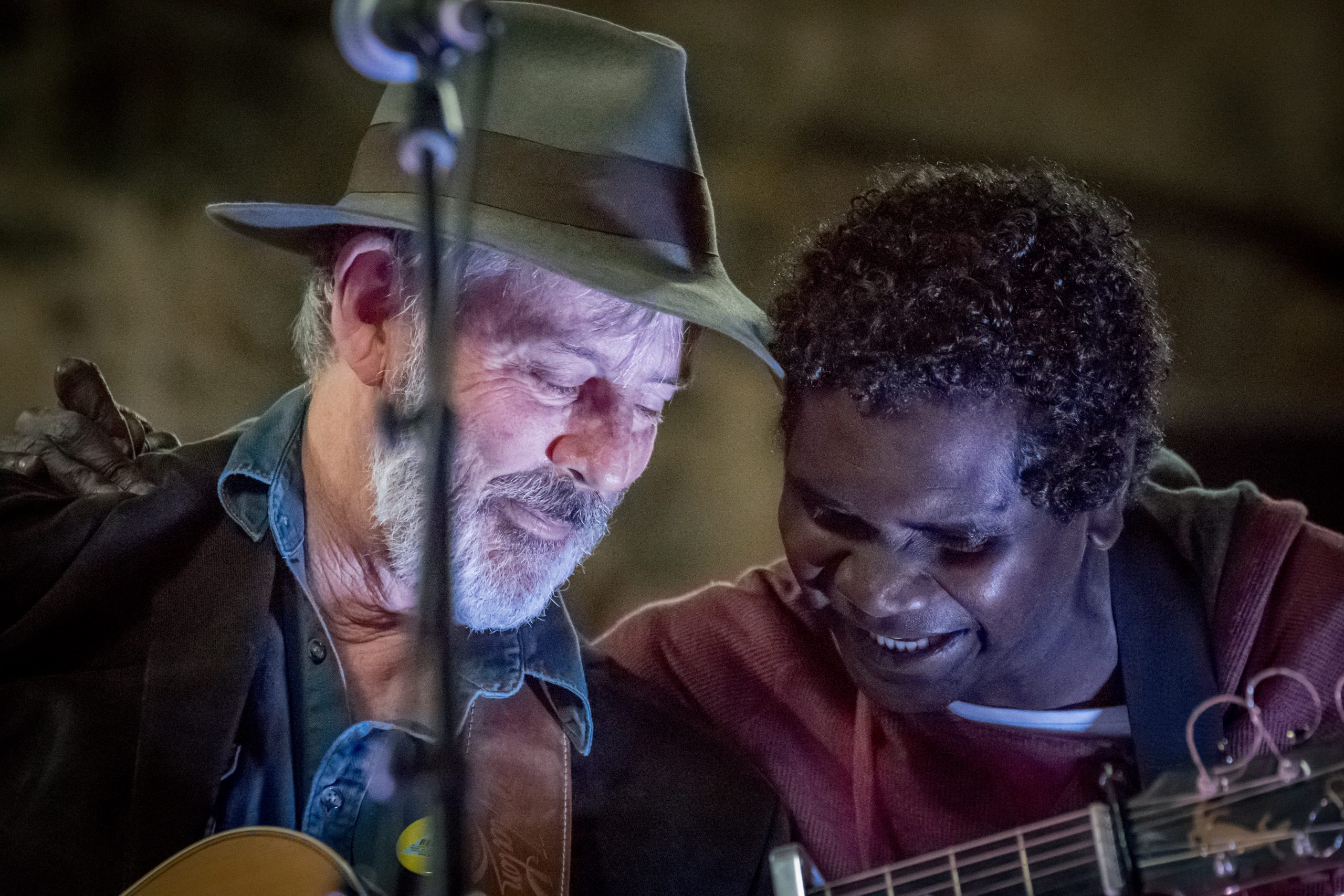
Shane Howard performing at the “Two Worlds” festival.
One of the ends I proposed for his book was when he returned to Ireland in 2008 to perform with the Black Arm Band and they were given a welcome to country by a native Irish speaker bearing a sprig of oak, none of which, he said, “was lost on my Aboriginal friends”.
I met him around the time of his Clan album. That was in the ‘90s after he returned to western Victoria, his place of origin. He’s since been called a songman for that country by Bart Willoughby, the beating heart behind iconic blackfella band No Fixed Address.
Shane’s catalogue includes great rock songs like “Common Ground” and “Walk on Fire.” He’s written songs of place, songs of resistance, songs of experience. Once, when it seemed my eldest granddaughter might have a dire disease, I hastily crossed Melbourne to render such comfort as I could listening as I drove to Shane’s song, “Still Be Here”, that begins with his voice naked as the sky:
“Help me now to build this bridge,
I do not know where to begin……”
I could go on, but I’m not going to. Instead, I am going to explain that the reason I’m writing about him on January 26 is because he did something last year on January 26 that struck me.
It happened in Burnie, in the very place – the Burnie Town Hall – where he was threatened with the star picket if he sang “Let the Franklin Flow”. Some people may disagree with the politics of what followed, but I was struck by what was achieved, perhaps because I come from Tasmania and thought the chances of this sequence of events coming off were nil. Absolutely zero. I got Shane to write down what happened:
“In 2019, Ken Dorsey, a councillor for the City of Burnie, Tasmania, rang and asked if I would come and perform ‘Solid Rock, Sacred Ground” at the Burnie Australia Day ceremony.
I politely declined, citing my objections to ‘Australia Day’ as a divisive day, offensive to our Aboriginal brothers and sisters. But Ken argued that we weren’t going to move the story forward without engaging in the discussion. He gave me pause to think. I was staunchly in favour of the ‘Change the Date’ campaign. I also told him that such an event could only happen with the blessing of the Tasmanian Aboriginal Centre (TAC), which was highly unlikely.
Ken’s an American by birth and not easily dissuaded. As such, he didn’t carry the same kind of guilt or emotional baggage that most Australians do.
He spoke to Heather Sculthorpe at the Tasmanian Aboriginal Centre, eventually going to Hobart to meet face to face, where they came to an arrangement. I would perform at Burnie at the ‘whitefella’ ceremony and then travel on to Devonport to perform at the ‘blackfella’ ceremony. There would be a Welcome to Country at the Burnie event conducted by Palawa artist Dewayne Everett Smith, who would speak and sing (Palawa is a word used in Tasmania that equates with Koori and Murri).
I now had no excuse for not going.
I was anxious, so I spoke to my friend Theresa Sainty, a Palawa woman, who was reassuring and asked me if I would sing the chorus of ‘Solid Rock, Sacred Ground’ in Palawa kani, if she translated it. I agreed of course.
On the day, Dewayne Everett Smith, a descendant of Mannalargenna and Fanny Cochrane Smith, spoke first, welcoming people to country by telling a story of the hard-edged reality of colonial brutality in Tasmania and how his mixed race family had maintained a sense of their cultural integrity, against the odds, supported by their white grandmother. ‘Our stories are intertwined,’ he said and then sang beautifully, in Palawa kani.
I was then given the opportunity to speak, unedited, about the need for truth-telling about our often brutal and ugly history. Led by Theresa’s daughter, Merinda on fiddle, we then played ‘The Black Cat Piddled In The White Cat’s Eye’, a popular old Cape Barren Island tune. I sang ‘Let The Franklin Flow’, ‘Heart of My Country’ and finished with ‘Solid Rock, Sacred Ground’ in Palawa kani, the recovering language of Aboriginal Tasmania.
In the afternoon, we travelled on to perform again at the equally powerful Invasion Day ceremonies at Devonport, organised by the TAC. At both events, speakers both black and white, talked of the need to reach out across the divide to each other and work together to move our story forward.
I saw people changed that day. I was too.
We need a lot of change in this country. At some point we have to find the courage and imagination to politely let colonial relics go.
Changing the date of Australia Day might prove less significant than changing what we do on that day or any other date we choose.
As Dewayne Everett Smith said, “This is not about a black history or a white history. It’s about our history.”
Shane Howard just carries on, like he’s always done.

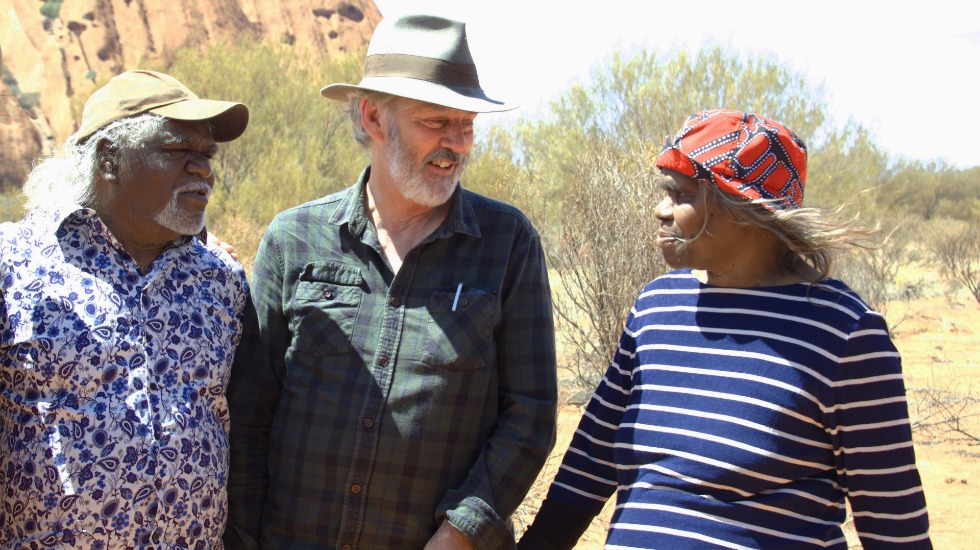


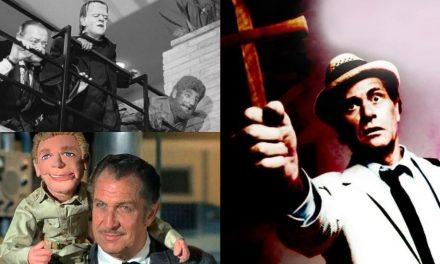
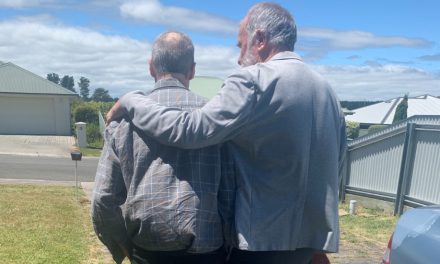
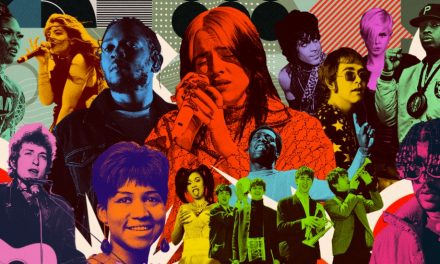






Just stumbled upon this after searching out Solid Rock on Spotify. So much respect for Shane Howard – new goal, to see him playing in Melbourne at a live event. Love Mary Black’s music as well. So much respect also to you, Martin Flanagan, for this article so beautifully written and with so much heart,
I really enjoyed reading your article on Shane. I’ve known him for a long time and think the world of him. Have followed his music for years and it always speaks to the depths in my being. Hope one day may meet you too. Sure we would have lots to talk about.
I do not know Shane Howard personally but know of him through some well spent years in the music industry a few decades ago. Was a follower of Goanna and No Fixed Address in the days of Bananas and many more R&R night clubs and music venues. Thank you Martin Flanagan for your words on and about SH. We are so late in getting ourselves together and turning “black fellas” and “white fellas” into “All Fellas” Time to close the abyss between us and get on with healing the planet we need. Blessings….
Martin again you’ve nailed this story with your amazing passion for telling a story. Thank you from the bottom of my heart. Shane’s a good subject. Kind regards Janet Galpin descendant Mannalargenna, Gypsy Lee’s niece
Quite a combination: Martin Flanagan writing about Shane Howard. Kindred spirits if ever there was.